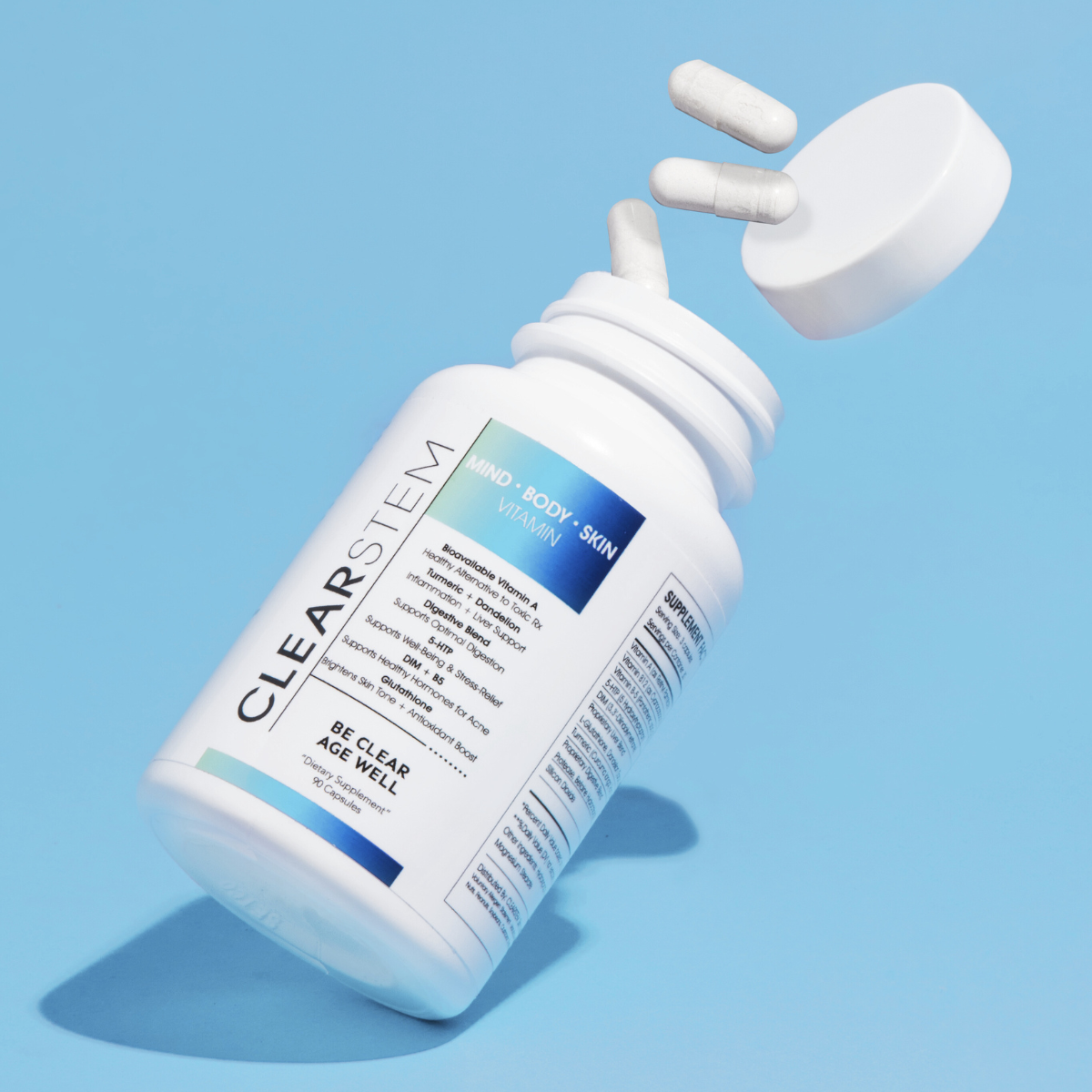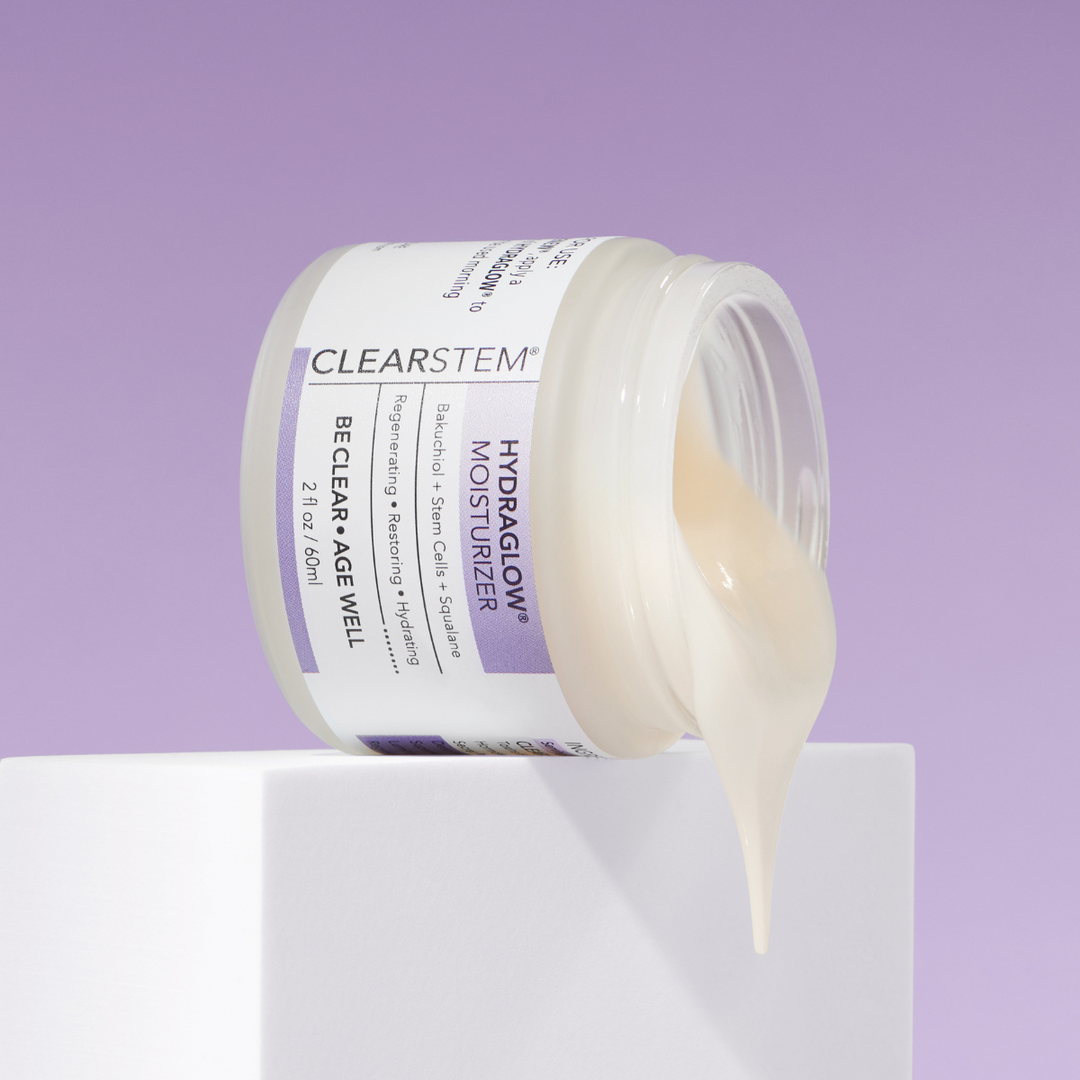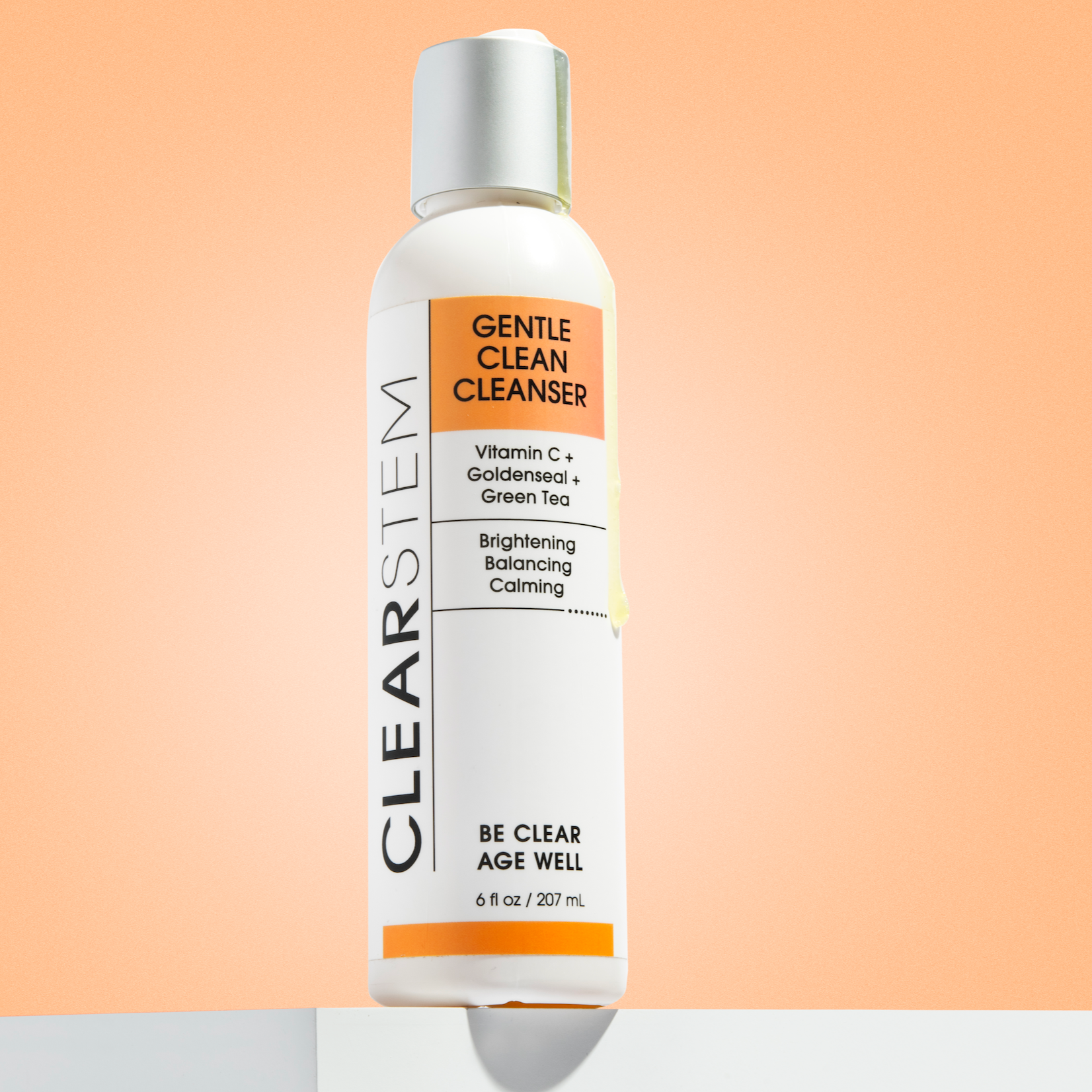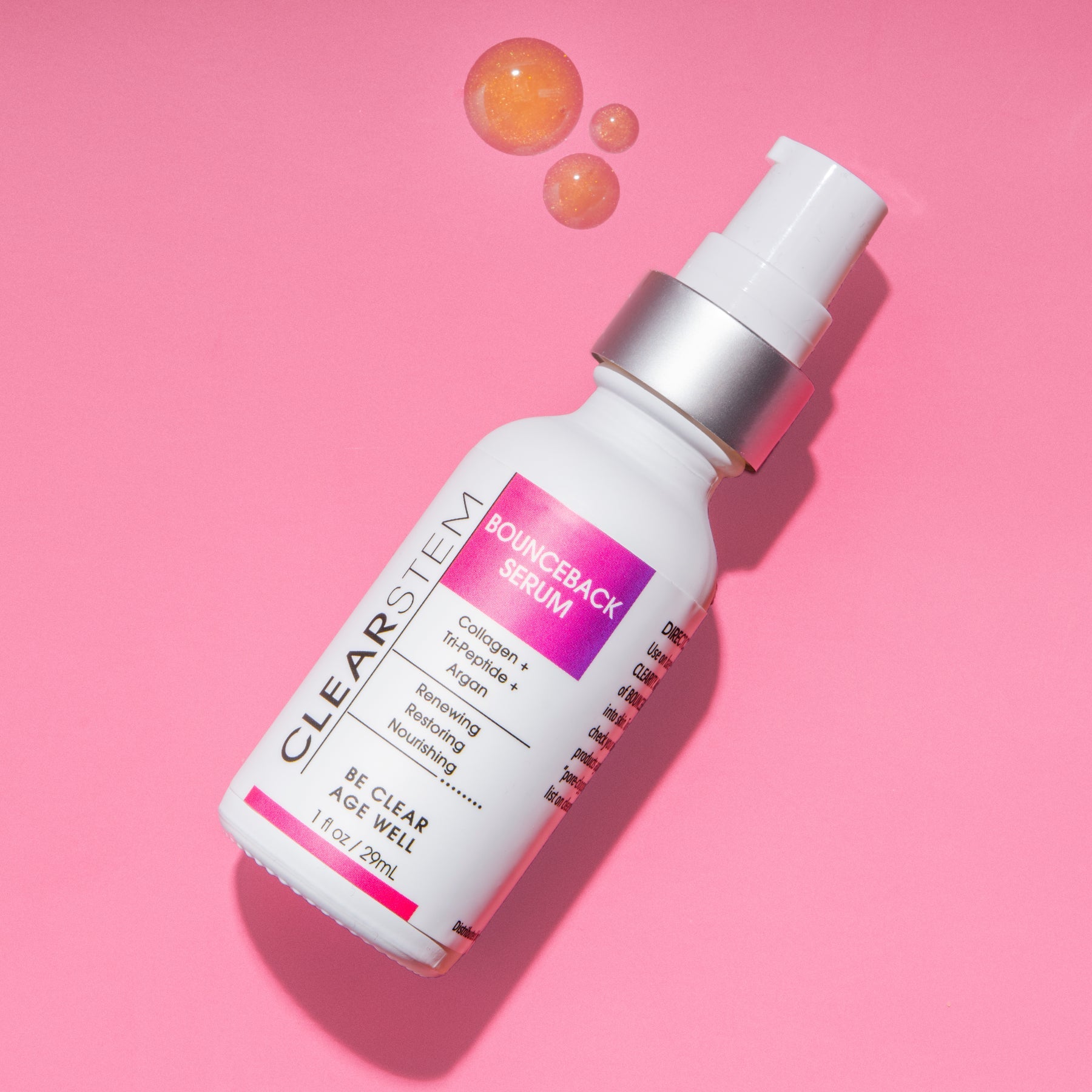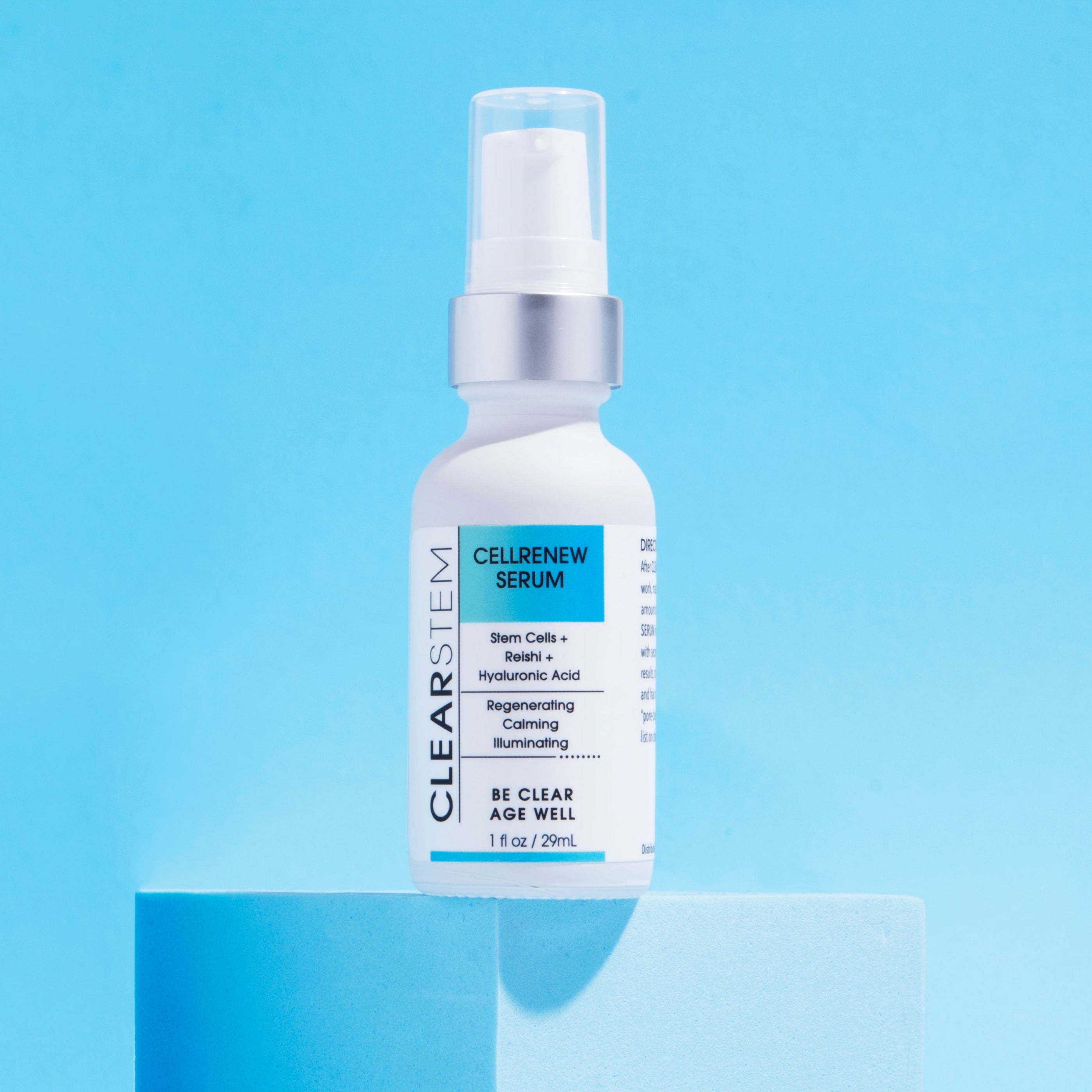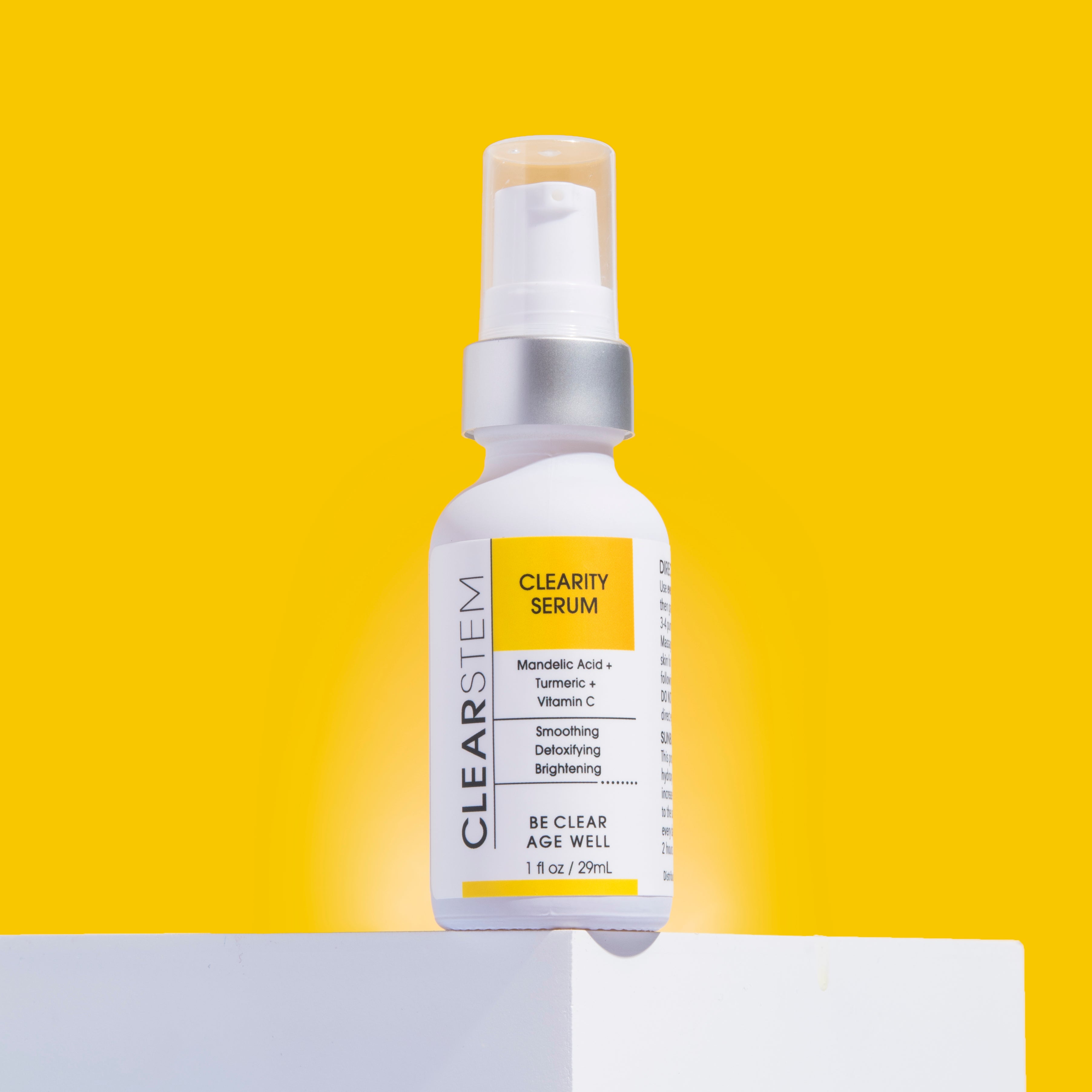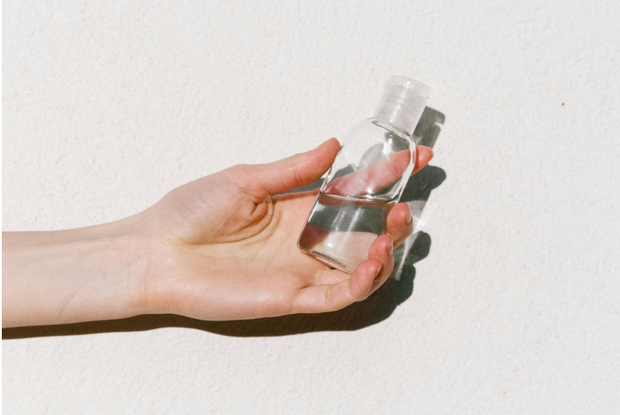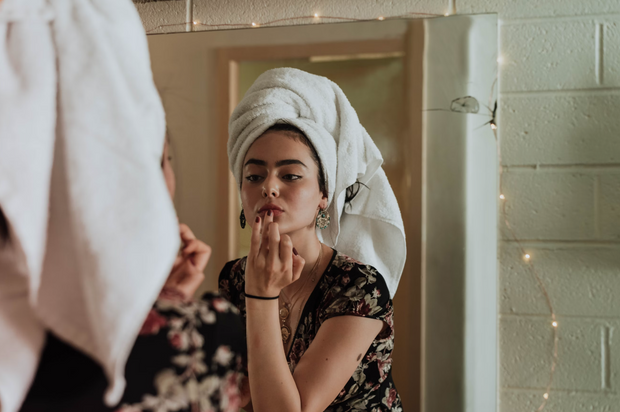Anyone who struggles with acne knows it’s not just a surface-level concern. Acne can deeply affect all areas of your life, and finding the most effective acne treatment can feel like a life-long struggle.
Many remedies are recommended for severe acne, including the infamous Accutane treatment. But what do you do when Accutane doesn’t work?
Our CLEARSTEM experts will dive into reasons why Accutane may not be an effective acne treatment and offer Accutane alternatives that actually work.
What Is Accutane?
Whether directly from your dermatologist or by word of mouth after a night out, you’ve likely heard of Accutane. Oral Isotretinoin, or Accutane as it’s commonly known, is a potent prescription medication endorsed to treat severe acne, usually as a last resort after other treatments fail to deliver results. You should always consult with a dermatologist or healthcare provider before taking this oral medication as there are many risks.
Accutane is a derivative of vitamin A—an organic molecule naturally occurring in the bloodstream and a common ingredient in skincare solutions. Vitamin A acts as an exfoliant for the skin’s surface by removing dirt, excess oil, and dead skin cells to minimize acne’s appearance.
Accutane typically takes 4 to 6 months to be fully effective, and responses vary from person to person. Multiple rounds are necessary for some patients (mainly women), and almost all patients experience side effects in high doses as well as a purging period that can last for months.
What Are Some Common Accutane Side Effects?
You can usually expect Accutane to tackle inflammatory acne breakouts after taking it over enough time. In one study, 85% of patients saw their skin clear up on low doses of oral Isotretinoin, but not all of its effects are as desirable.
A majority of patients report experiencing unwanted side effects when taking Accutane, such as:
- Severe purging with nodulocystic acne
- Acne worsening at first
- Thinning hair
- Upset stomach or dizziness
- Sore joints
- Vision issues
- Extreme sun sensitivity
- Skin rash and irritation
- Overall dryness, including chapped lips, dry skin, dry eyes and mouth, and nosebleeds
So if Accutane doesn’t work for you, you’d certainly not be alone. Several factors can affect its success, and a little insight might clarify those affecting yours.
4 Reasons Why Accutane May Not Work for Everyone
You may be considering incorporating Accutane into your stockpile of skincare solutions as a home treatment, or perhaps you’ve already tried it with lackluster or limited results. Let’s look at four common reasons Accutane may not work for everyone.
#1 Individual Variations in Response
Everyone’s physiology is unique, including skin. Skin conditions and issues can reflect what’s happening inside your body, such as gut health or hormone production.
Hormones are chemical messengers that communicate with each other to coordinate functions in the body. Think of them as biology’s busiest party planners: they’re diligent all day, making glands and organs like your skin work. But the party may not be the perfect shindig they planned.
Sebaceous glands can be sensitive to testosterone, and a spike in this hormone can trigger the overproduction of oil and clog pores. Stress, hormonal imbalances during a person’s monthly menstrual cycle, or a drop in estrogen during menopause can cause skin changes, too.
Keep in mind Accutane does not address hormonal imbalance, so if you suspect your hormones are behind ongoing bouts of breakouts, it might not be the best choice for you. A functional lab test for acne can help uncover the root cause of your acne through blood work. Our lab test assesses various categories such as stress, blood sugar, hydration, hormones, possible infections, immunity, inflammation, and more. These imbalances can impact our overall health, thus influencing our skin health as well.
#2 Severity and Persistence of Acne
Accutane and its active ingredient, vitamin A, target the skin’s surface where inflammatory acne develops to encourage new cellular growth. Sometimes, it can cause the skin cells that border pores to behave abnormally.
Acne-prone skin can become red and inflamed, and painful pimples like nodular and cystic acne can occur. These types of breakouts can worsen or persist with continued use and are commonly mistaken for skin purging.
While a few measures can be taken, medical professionals still don’t understand why this occurs. Skip this inconsistent acne medication and try our hormonal acne supplement that helps fill nutritional gaps to balance hormone levels and help your skin recover from acne. It’s perfect for people experiencing mild acne to severe cystic acne.
#3 Incomplete Treatment or Dosage Issues
Like any prescription medication, figuring out the correct dose of Accutane determines its efficacy. Daily dose and total dose are measured in milligrams and differ based on body weight.
Still, dosing is not an exact science—there is no fixed dose for each individual. Instead, Accutane is prescribed based on a weight range. Accutane may not work if your daily dose is too low or if you experience consistent weight loss or weight gain.
Consistency in dosage and home treatment completion are also crucial to optimizing Accutane’s outcomes. Completing your prescribed cumulative dose is recommended even if your skin shows initial signs of improvement. Keep in mind that changing or increasing dosage in the middle of treatment can produce mild to severe side effects.
#4 Severe Side Effects
In some cases, severe side effects with Accutane use can occur that disrupt or decrease its effectiveness. While severe side effects are less common, keep these possible side effects in mind when considering Accutane:
- Liver damage
- Issues with eyesight
- Pregnancy defect
- Mood swings, depression, or thoughts of suicide
Contact your healthcare provider or discontinue use if you’re unsure if Accutane suits your skincare needs. While Accutane is often prescribed to treat severe acne, it’s not the ultimate solution for long-term, clear skin.
What Are the Best Alternatives to Accutane?
Acne issues are more than just skin deep. When Accutane isn’t the answer to clearing up your skin, it may be time to explore natural alternatives in your skincare routine.
Hormonal Acne Supplementation
CLEARSTEM’s MINDBODYSKIN® Hormonal Acne Supplement works from the inside out by targeting digestion, optimizing the body’s natural detoxification process, and addressing stress.
Ingredients like milk thistle and 5-HTP deliver results you can see after 7–10 days, so you don’t have to wait months for relief. We also launched another version that’s a natural hormonal acne supplement without 5-HTP, recommended for people taking SSRIs, mood stabilizers, or antipsychotic medications.
Non-Comedogenic Skincare Products
Choose non-comedogenic skincare products that are specially formulated for acne-prone, sensitive skin. Paired with our hormonal acne supplements, we can minimize the risk of future acne breakouts by using ingredients that won't block pores (also known as non-comedogenic).
Non-comedogenic products can help maintain clearer skin and prevent further irritation, which is crucial for those who do not respond well to strong treatments like Accutane. Additionally, our skincare products often contain ingredients that promote skin repair and minimize the appearance of acne scarring, supporting overall skin health and improving texture.
Discover a Different Solution to Acne with CLEARSTEM
Accutane may be the much-talked-about and repeatedly prescribed acne solution when all other treatments fail, but it can be ineffective for many. Some people who used Accutane reported undesirable side effects like worsening acne or other undesirable side effects. But don’t lose hope—Accutane isn’t the only solution to your skincare concerns.
AT CLEARSTEM, we specialize in skincare for acne-prone skin that not only prevents breakouts by unclogging pores but also nourishes and rejuvenates your skin. Say goodbye to surface-level prescriptions and hello to skincare that works with your body.
Sources:
American Osteopathic College of Dermatology. Accutane. https://www.aocd.org/page/Accutane.
National Library of Medicine. Retinoids: active molecules influencing skin structure formation in cosmetic and dermatological treatments. https://www.ncbi.nlm.nih.gov/pmc/articles/PMC6791161/
National Library of Medicine. The use of isotretinoin in acne. https://www.ncbi.nlm.nih.gov/pmc/articles/PMC2835909/#:~:text=Eighty%2Dfive%20percent%20of%20patients,12%20months%20of%20continuous%20therapy
American Academy of Dermatology Association. Isotretinoin: The Truth About Side effects. https://www.aad.org/public/diseases/acne/derm-treat/isotretinoin/side-effects
Medical News Today. Hormonal acne: What you need to know. https://www.medicalnewstoday.com/articles/313084
Advanced Acne Institute. Why Didn’t Accutane Work for Me? https://advancedacneinstitute.com/why-didnt-accutane-work-for-me/

